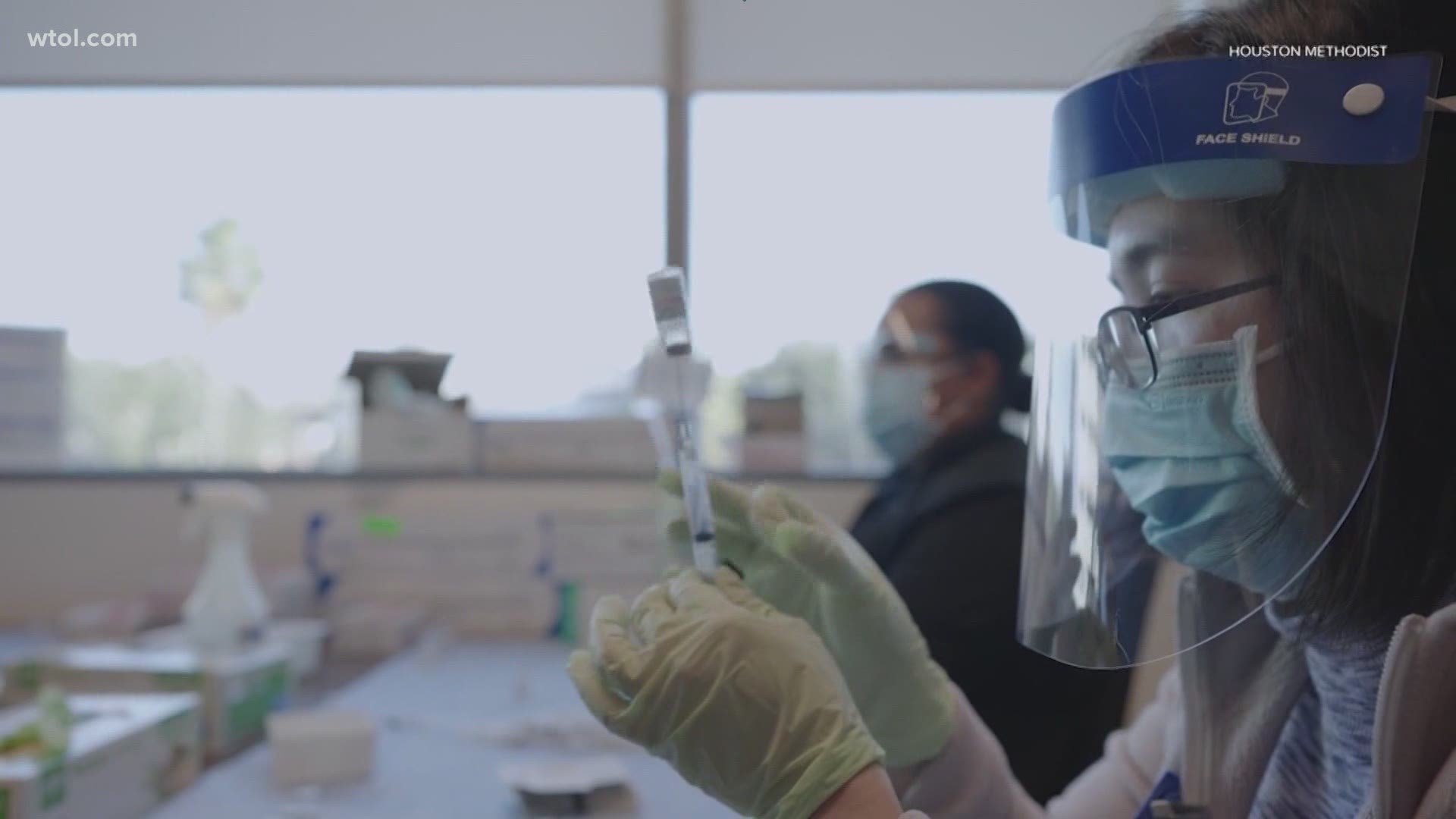TOLEDO, Ohio — Scientists say mRNA could change the way we develop a variety of vaccines moving forward and some argue the limit does not exist when it comes to treating other illnesses than COVID-19.
But, what is mRNA? In a nutshell, it's a molecule that acts as a set of instructions for our cells.
"If I handed you a book, DNA is the whole book; mRNA is kind of like handing you the copied, highlighted chapter that I want you to read so that we're making sure you get it right," Dr. Adam Walter, medical director at the ProMedica Cancer Institute, explained.
"If I had a raw egg, and I broke that egg and kept it intact, and the yolk is the nucleus where our DNA is housed, then the mRNA vaccines work out in the egg white," Dr. Anthony Armstrong, former president of the Ohio State Medical Association, said during a Monday VProject town hall.
We now know mRNA can be tailored to fight the virus that causes COVID-19, but that's just the start. Experts believe the right sequencing could battle everything from malaria to cancer.
"It is easier to do, would be easier to do, in things that do not mutate quickly," Walter said.
Walter finds the technology amazing but is more skeptical when it comes to treating cancer simply because of how personalized the disease for every patient.
"With the COVID vaccine, it's the same chapter in the same book for every person. That is not necessarily true for different kinds of cancers," he said.
It would simply take a large investment and perhaps a more precious commodity: time. However, tailoring personalized vaccines isn't out of the question.
The Association of American Medical Colleges says funding along with resources for research could wane after the pandemic. That's the main hurdle in making this technology more widespread in medicine.

